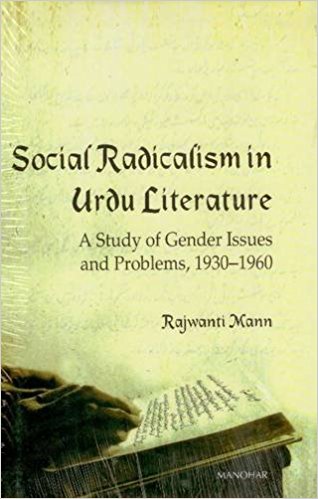Literature is not only a mirror but also a major source of inspiration. With the formation of the Progressive Writers Movement in India in 1936 a radical shift emerged in the consciousness of Urdu writers. This book examines the role of progressive writing in the history of India. The Russian revolution was looked at with awe and respect and Marxist ideology recognized as a strong intellectual force with a deep influence on young minds. Mann traces the contribution made by Rashid Jahan, Ism Literature is not only a mirror but also a major source of inspiration. With the formation of the Progressive Writers Movement in India in 1936 a radical shift emerged in the consciousness of Urdu writers. This book examines the role of progressive writing in the history of India. The Russian revolution was looked at with awe and respect and Marxist ideology recognized at Chugtai, Sajjad Zaheer, Saadat Hasan Manto, Krishan Chander and Rajendra Singh Bedi to the social and cultural fabric of the country. In its nine chapters Rajwanti Mann writes about the various social issues that were of major concern to most of these writers. The history of this movement began with the publication of Angarey (Embers) in 1932.
Four young men and a woman collaborated jointly to publish a collection of nine short stories and a one act play. It was met with an uproar and banned by the Government of United Provinces under section 295 A of the Indian Penal Code on March 15, 1933. A fatwa was issued against the writers for using obscene language and critiquing religion and patriarchal values with striking boldness. It was described as a major landmark in the history of Urdu literature.

